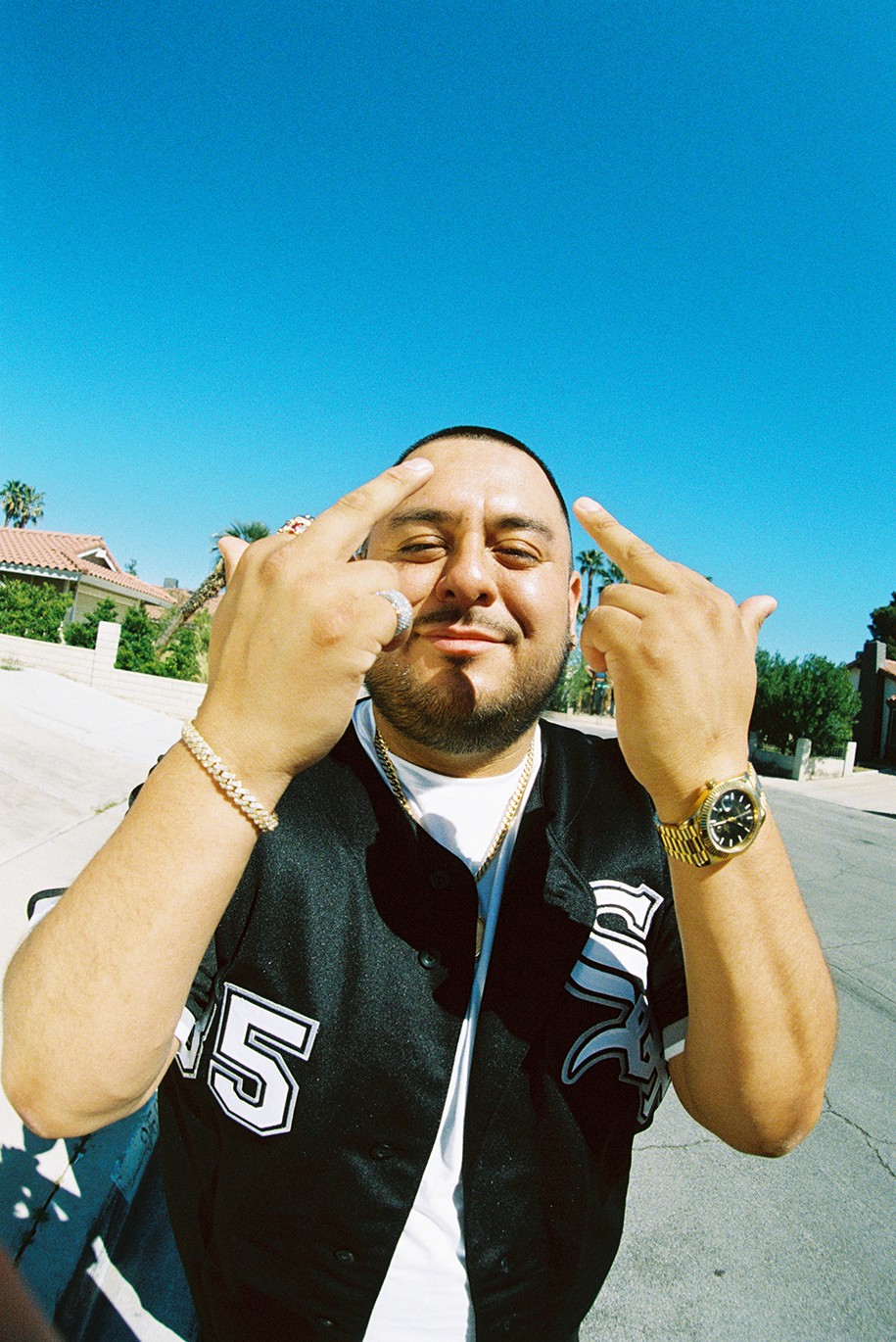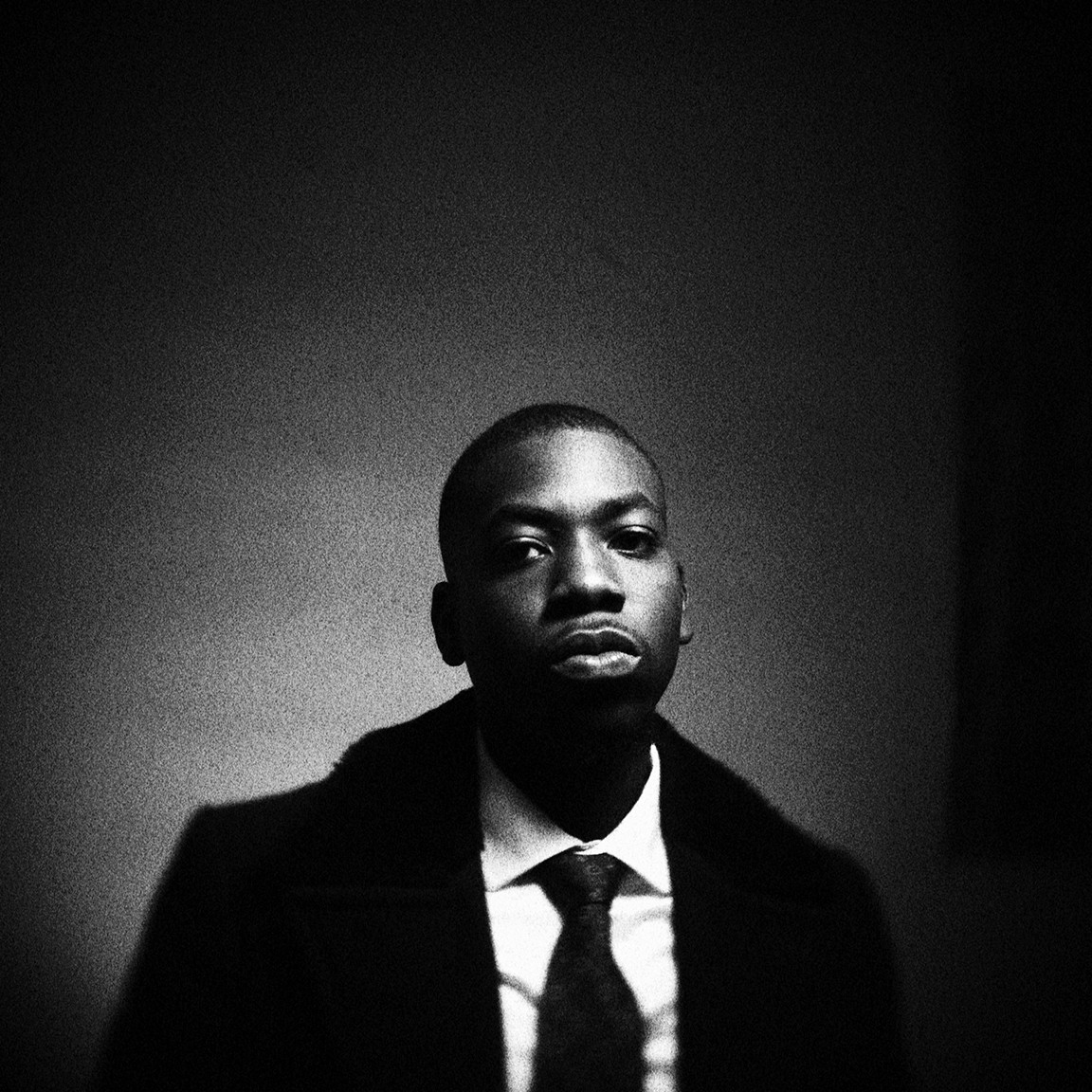Exclusive Interview
Dec 27, 2024
Produced by: Andrej Aroch
Edited by: Rudy Manager & Andrej Aroch
Wizzle – German Producer Behind The Kid LAROI, Rylo Rodriguez & DaBaby
In this exclusive Studio Talks interview with Wizzle, a highly regarded music producer from Germany, we dive into his journey through the music industry and the creative process behind his standout work. Having collaborated with major artists like The Kid LAROI, Rylo Rodriguez, DaBaby, and more, Wizzle has firmly established himself in the scene. Known for his innovative approach to music production, he blends elements of hip-hop, trap, and other genres to create unique, captivating sounds. In this interview, Wizzle shares insights into his early influences, his experience working with top artists, and the valuable advice he has for aspiring producers looking to make their own impact in the industry. This interview was conducted by Andrej Aroch via video call on November 25, 2024.
“Being outside musical hubs means you’re more isolated, which can help you develop a distinctive sound”
- Wizzle
How did you first get interested in music, and how did that eventually lead you to music production?
It all started with me taking flute and classical acoustic guitar lessons when I was pretty young—until I was about 14 or 15 years old. But as a teenager, I got bored with it. You know how it is—I wanted to play video games and do all the typical stuff you’re into at that age. I lost interest for a while.
I didn’t get back into music until late 2018, when I was about 19. That’s when I discovered a producer on YouTube named Aries. He made videos showing how famous songs were made in just two minutes, recreating the beats in Logic Pro. Watching him do that, I thought, “Wow, this is so cool.” I’d always been kind of curious about production, but I’d never seen someone actually making music in a DAW like Logic before.
That really inspired me. I thought, “Maybe I could try this, too.” Around that time, I had just gotten a MacBook for my apprenticeship, so I downloaded GarageBand and started experimenting. At first, the stuff I made didn’t sound great, but it was so much fun.
Then I realized I could bring in my guitar and flute playing—all the live instruments I’d learned during those lessons. That was a game-changer for me. I got completely hooked, falling down the rabbit hole of music production and spending all my time on it. It also reignited my love for playing guitar.
Can you remember some of your musical influences from back then?
When I first started getting into music production, especially focusing on samples, Cubeatz were a huge influence. They’re still going crazy, but that 2018–2019 era was absolutely insane. Metro Boomin was another big one. I can’t even count how many times I watched the Deconstructed video from Genius on "XO TOUR Llif3" by TM88. That was such a major influence for me as well.
Before I got into music production and was just playing guitar for fun, my influences were different. They were definitely bands like Blink-182, Green Day, and System of a Down. My dad introduced me to those bands when I was growing up, and they left a big impression on me.

In your opinion, what makes a great sample for hip-hop or trap production?
Honestly, I think it has to be simple but unique. Of course, it depends on the specific subgenre of trap or hip-hop you’re working on, but one thing that consistently works is keeping it simple while making it stand out.
A great sample should be super catchy—whether it’s a guitar riff, a vocal line, or some other element that immediately grabs your attention—but it also needs to feel original. That balance between being memorable and fresh is really important.
What is your usual creative process?
It’s always changing. If I stick to the same creative process every day, I get stuck pretty quickly. So, I’m constantly trying to find new combinations of instruments I haven’t used, experimenting with different effect chains, or exploring new ways to use my gear.
That said, a few things always stay consistent. For example, I usually start by jamming on my guitar. That’s where I feel most comfortable, whether it’s finding a cool chord progression or coming up with a riff I can later refine or re-sing.
Another big part of my process is listening to music for the first time. Right now, my home studio is at my dad’s house, about a 20-minute drive from where I live. During that drive, I listen to music I’ve never heard before—old or new, it doesn’t matter, as long as it’s unfamiliar to me. There’s something special about hearing something for the first time. It’s so inspiring.
When that happens—if I hear a cool sonic element or a unique combination of instruments—I use the voice memos app on my iPhone. Sometimes I’ll imitate a guitar riff or hum a vocal melody to capture the idea. So by the time I get to the studio, I already have these starters saved on my phone that I can develop further.
Another song I’d like to discuss is “Peace and Love” by Wiz Khalifa, which you worked on with TM. You mentioned earlier in this interview that you used to watch TM’s breakdowns. Can you share how this track came together and what it meant for you to collaborate with a producer you once looked up to?
This was a fun surprise because I didn’t know about the song before it dropped, but the whole process was super cool. It started with Bryan Yepes, who I collaborated with on the sample. He sent me some starters and ideas via email, about a year before the song’s release. One idea really caught my ear—it was this guitar loop with a small vocal element layered on it.
I added to it by playing additional guitars, creating a bassline, adding effects, and layering this vocal choir that you hear throughout the track. After that, I sent it to TM. I don’t remember the exact timeline, but my manager connected me with TM, probably back in 2021. So I sent him this idea, and then I didn’t hear anything about it for a few months.
One day, I saw TM on Instagram Live playing a beat with the sample I’d sent him. It turned out to be a pop beat, which was super exciting because I had originally started by making only trap and hip-hop samples. About two years ago, I began experimenting with different genres and rhythms, so seeing someone use my sample for a pop track was rewarding.
Then, one Friday in March 2023, I woke up to tons of messages on my phone. I was still tired and couldn’t fully process what they were about, so I checked again later. That’s when I found out Wiz Khalifa had released a song using the beat TM, Bryan, and I had worked on!
It was a fun surprise, especially since even the clearing process with TM and Wiz Khalifa’s team went incredibly smoothly. It showed me how unpredictable working in the music industry can be, but in the best way possible.
What advice would you give to new producers outside the major hubs like L.A. or Atlanta who are just starting out and looking to connect with artists?
If you want to connect with artists, especially more established ones, the best strategy is to build relationships with their producers first. Forming strong connections with them can naturally lead to opportunities with the artists they work with.
For those who don’t live in major music hubs like L.A. or Atlanta—or even outside the U.S. altogether, in Europe or elsewhere—you can turn that into an advantage. Being outside those environments means you’re more isolated, which can help you develop a distinctive sound. If you’re not in studios all day, surrounded by other people, you’re forced to lock in and focus on your own creativity. That solitude allows you to explore your ideas deeply without distractions. Even if you’re doing Zoom or Muse sessions with others.
At the same time, it’s important to maintain a healthy balance between working on music and doing other things. Especially when you’re not surrounded by a constant music scene, it’s super helpful to spend time with friends who don’t know what an 808 is or what publishing deals are. For me, spending time with people outside the music world helps me stay grounded and humble. It also gives me a different perspective.

Is there an upcoming artist or producer you think is going to blow up in the near future?
For me, it’s definitely Mk.gee. I mean, he’s already started to blow up—he’s been on Saturday Night Live, and his album is doing crazy. But I think his sound will get even bigger as he releases more music because nobody else is really doing what he’s doing right now.
I recently went to one of his shows in Berlin, and what he’s doing live is even more impressive than what’s on his album. It’s clear he has the longevity to make a significant impact on the industry. I truly believe he has the potential to change the sound of music and do something great.
Where do you see yourself in five years’ time?
I see myself happy, healthy, and hopefully still filled with the same love and passion for making music. Over the next five years, I’ll definitely have released some of my own music.
Is there anything you’d like to add at the end of the interview?
One thing that’s been on my mind is the negativity in the music business. There are a lot of people who get scammed or taken advantage of. My advice, especially to young people just starting out, is to be kind to each other. I know it sounds cliché, but it’s the truth. You never know what someone else is going through, especially when it comes to mental health. Working in music can get really lonely at times, and it’s easy to feel mentally isolated.
That’s why it’s so important to be human, show kindness, and be friendly to others, even if they can’t help you with placements or anything like that. It’s about treating people with respect and empathy, no matter what they can do for you.
Follow Wizzle on Instagram: @wizzlegotbeats
More Blog Posts
See our latest blogs















